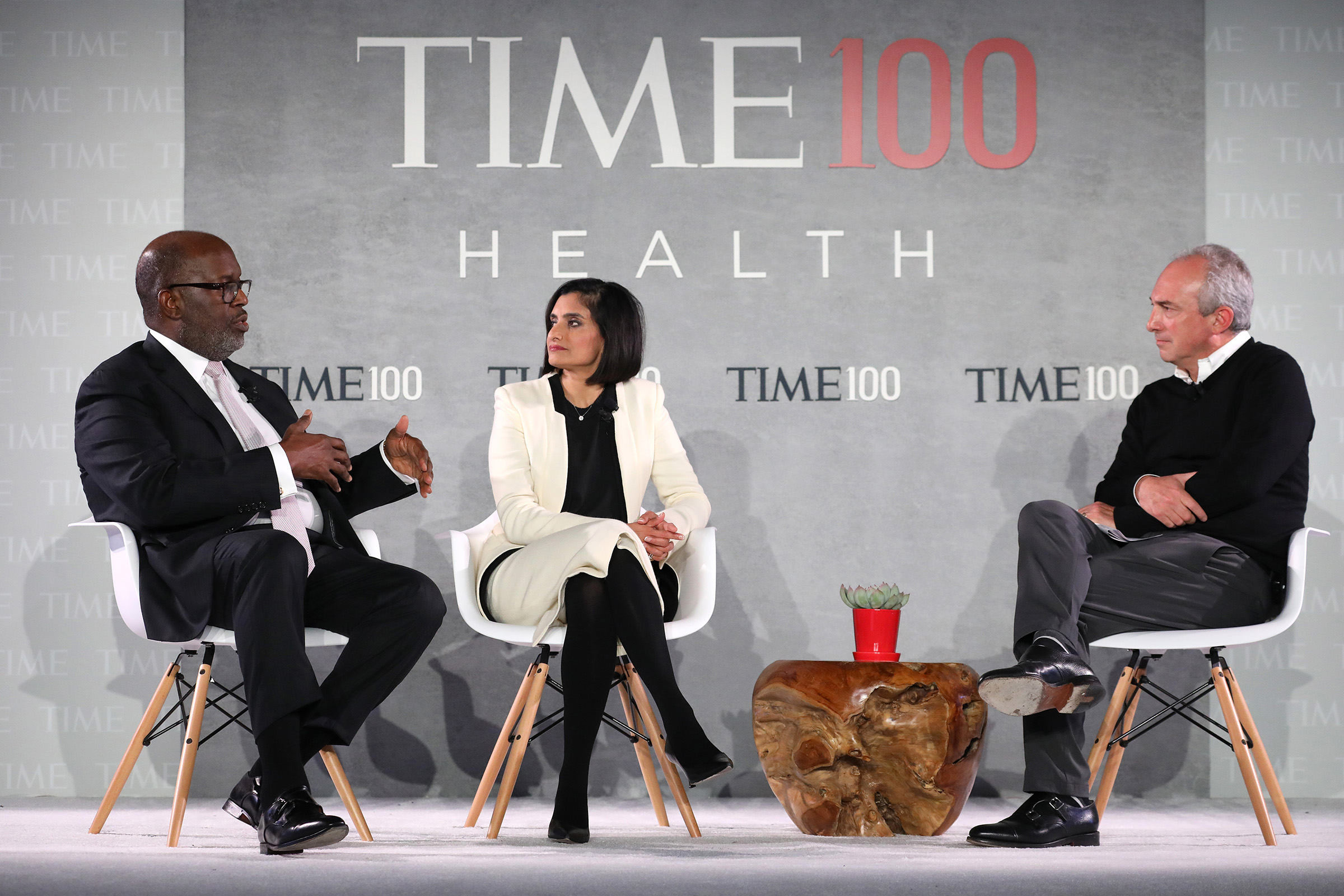<!-- wp:gutenberg-custom-blocks/featured-media {"id":"5703823","url":"https://api.time.com/wp-content/uploads/2019/10/time-100-health-summit-053.jpg","caption":"(L-R) Chairman \u0026amp; CEO at Kaiser Permanente, Bernard J. Tyson, Administrator at the Centers for Medicare \u0026amp; Medicaid, Seema Verma, and TIME 100 Health Summit Co-Chair, Dr. David Agus, speak onstage during the TIME 100 Health Summit at Pier 17 in New York City on Oct. 17, 2019.","credit":"Brian Ach—Getty Images for TIME 100 Health","mediaSize":"medium-jw","playlistId":"1yJ2oqEl","goJwPlayer":true} -->

<!-- /wp:gutenberg-custom-blocks/featured-media --><!-- wp:paragraph -->
Seema Verma, the administrator of the Centers for Medicare and Medicaid Services under the Trump Administration, called Medicare for All “scary” and said the government is to blame for many problems with the United States health care system during an interview at the TIME 100 Health Summit on Thursday.
More Coverage
<!-- /wp:paragraph --><!-- wp:paragraph -->
“A lot of the problems that we have in health care are rooted in government policy,” Verma said. “My view is that we move to a more competitive environment. The government’s role is to create competition and to make sure that patients are protected.”
<!-- /wp:paragraph --><!-- wp:paragraph -->
Her comments came during a panel about drug and health care pricing, in which she and Kaiser Permanente CEO Bernard Tyson were interviewed by Dr. David Agus, director of USC’s Lawrence J. Ellison Institute for Transformative Medicine.
<!-- /wp:paragraph --><!-- wp:paragraph -->
Verma said that the current increasing drug prices in the U.S. is unsustainable, but that she believes the government is not the best entity to solve the problem. Rather, government bureaucracy often gets in the way of finding solutions, she argued.
<!-- /wp:paragraph --><!-- wp:paragraph -->
“This is why I’m always very concerned that we’re hearing conversations about more government, more Medicare for All. I think those kinds of things are very scary to me,” she said. “We see the day-to-day problems with a government run system.”
<!-- /wp:paragraph --><!-- wp:gutenberg-custom-blocks/video-jw {"mediaId":"V8mANrIc","autostart":false} -->
<!-- /wp:gutenberg-custom-blocks/video-jw --><!-- wp:paragraph -->
<!-- /wp:paragraph --><!-- wp:paragraph -->
Tyson and Verma also talked about the need to move the U.S. toward a value-based system that would reward physicians for keeping patients healthy rather than paying based on the services they provide. The conversation about reforming prices should include both the affordability of coverage and the affordability of care, Tyson said, noting that many Americans can pay their insurance premiums each month but run into problems with high deductibles.
<!-- /wp:paragraph --><!-- wp:paragraph -->
However, the CEO emphasized that he would like to see the U.S. improve on the Affordable Care Act rather than “blow up” the current system and create something new. Making care affordable is something the U.S. has to do “inside the healthcare delivery system,” Tyson said.
<!-- /wp:paragraph --><!-- wp:paragraph -->
When asked whose responsibility it will be to lower drug prices, Verma said she does see a role for the government in taking care of some of the country’s most vulnerable people, such as through Medicaid and Medicare. But she said she would not want to expand the government’s role in all aspects of care.
<!-- /wp:paragraph --><!-- wp:paragraph -->
“At the end of the day though, patients have to be empowered to make decisions about their care. They need to be in the driver’s seat,” she said. “Turning over negotiation to the government doesn’t work well.”
<!-- /wp:paragraph -->



